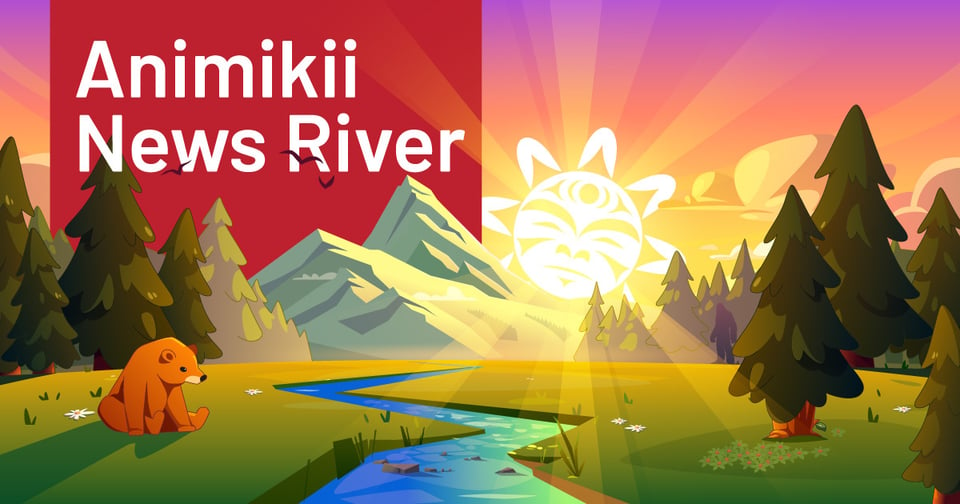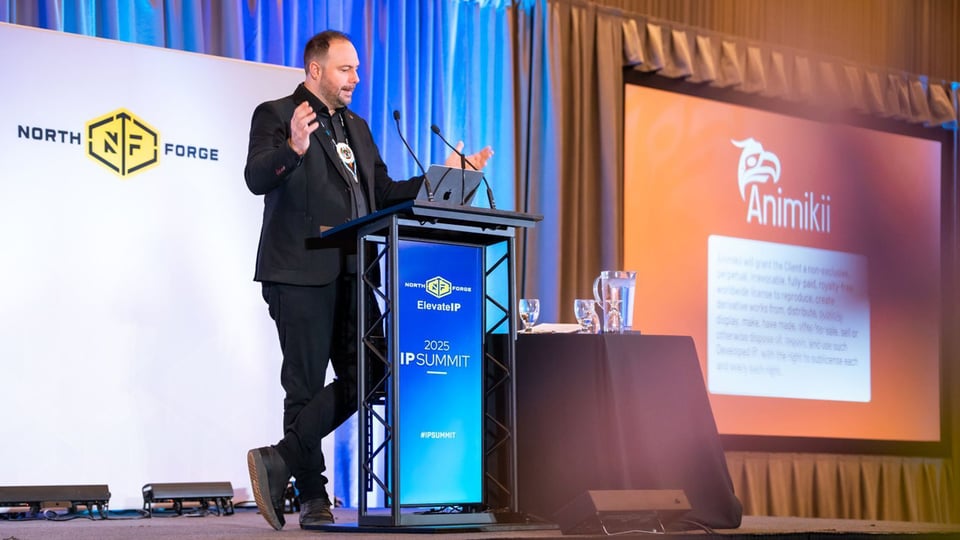“We’re tired of being afterthoughts in tech revolutions.”
Discussing Canada’s new AI Minister, positive health outcomes from traditional language use, and a giant food truck festival!

Boozhoo News River Readers,
This week the News River has articles ranging from our CEO’s comments on Canada’s new AI Minister, health outcomes linked to traditional language use, and the largest ever Native American food truck festival!
We hope you are spending this summer season with those closest to you, doing what you enjoy. Thanks for being here!
This week’s stories include:
“All the data we collect is Lil’wat’s first.” Challenging conventional archeological practices.
New research review finds that Indigenous people experience better health outcomes when they speak their traditional languages.
All the data in the world will not end colonialism: a discussion of Indigenous Environmental Data Justice (IEDJ).

‘Solomon is an intriguing choice’: Here’s what Canadian AI and tech leaders are expecting from country’s new AI minister
The big picture: The appointment of former journalist Evan Solomon as Canada’s first-ever AI minister is an intriguing choice, according to some of the country’s AI leaders — and having a background outside of tech could be a valuable strength. Solomon has previously worked as a host for CBC and CTV and was elected for the first time in the April 28 election. Indigenous tech leaders like Jeff Ward of Animiki say Indigenous Nations and organizations need a seat at the table where AI policy gets made.
Why it matters: In an email to Metroland Media, Olivier Blais, co-founder of Moov AI, a company that offers artificial intelligence solutions, training and strategy, said “Too often, AI policy is dominated by scientific or technical perspectives, while the societal impacts are sidelined. If the ministry can combine technical expertise with a broader societal lens, it has a real opportunity to shape AI policy in a way that works for everyone — not just tech insiders,” said Blais, who serves as a co-chair for Canada’s Council on AI.
Key points:
Blais emphasized the need for re-skilling and ensuring AI enhances rather than displaces Canada’s workforce.
Ward said there is also a need to help small- and medium-sized businesses think beyond LLM based chatbots adding that Canada needs AI for real problems.
Ward also urged the government to focus on funding Indigenous-built AI for use cases specific to Indigenous Nations and peoples’ health and environment while respecting data sovereignty.
What they’re saying: “Indigenous Nations and organizations need seats at the table where AI policy gets made,” Ward said. “We’re tired of being afterthoughts in tech revolutions.”
The tech founder also warned against data colonialism, a process which involves governments, non-government organizations, and corporations claiming ownership of and privatizing data produced by users and citizens which is often likened to historical colonialism.
“Centre our voices in AI policy or Canada will repeat history’s mistakes,” he said.
Learn more: Read the full article
Curated Articles:
Indigenous people's health tightly tied to speaking their own languages, review finds
A new research review out of the University of British Columbia (UBC) has found that Indigenous people experience better health outcomes when they speak their traditional languages. Researchers analyzed 262 academic and community-based studies from Canada, the United States, Australia and New Zealand, and determined 78 per cent of them connected Indigenous language vitality with improved health. Studies found positive outcomes ranged from better physical and mental health, to increased social connections and healing, to greater educational success. "Part of the reason why we undertook this literature review in the first place was because almost everyone that we speak with in Indigenous communities who is working on language revitalization report that reclaiming and learning their language has played a big role in their own personal health," said co-author Julia Schillo, a PhD student in UBC's linguistics department.
The project’s deeper aim is to challenge conventional archeological practices that have historically extracted Indigenous knowledge and artifacts without consent or benefit to Indigenous communities. Historically, some archeological digs or anthropological ethnographies conducted on Indigenous territory treat findings as the intellectual property of the researchers, rather than belonging to the host Nation. Angelbeck cited particularly egregious examples of researchers demanding compensation for First Nations seeking transcripts from elder interviews. The Douglas team is working to counter those practices. “All the data we collect is Lil’wat’s first,” Djakovic emphasized during a presentation. “We use it for research, but only under their guidance. Finding sites is tricky—we don’t always know where they are—but we’re working to connect the known villages, and we’re doing that on [Lil’wat’s] terms.”
TikTok Canada halts sponsorships at TIFF, Junos and other arts groups
Since opening offices in Toronto and Vancouver, TikTok says it has invested millions in programs and partnerships supporting local artists and creators over the past five years. But TikTok Canada's director of public policy and government affairs, Steve de Eyre, says Ottawa is now enforcing its order from last November to wind down operations over national security concerns, and TikTok has no choice but to suspend those initiatives indefinitely. Also among the casualties is the National Screen Institute's TikTok Accelerator for Indigenous Creators that has worked with nearly 400 participants since 2021. Sarah Simpson-Yellowquill, the program's manager, calls the shutdown "sad and disheartening," saying the accelerator has been a vital source of career opportunities and mentorship for Indigenous creators.
All the data in the world will not end colonialism. Data will never be enough to prevent environmental violence. These simple yet true statements prompt this discussion of Indigenous Environmental Data Justice (IEDJ). The environmental governance practices of colonial nation-states and international agencies have elevated data as key currencies within environmental justice struggles. Consequently, environmental data are used by communities and activists alike to demonstrate violence and harm, and also by states and companies to hide both. Indigenous communities—whose lands, waters, and bodies are disrupted by industrial, property, and extractive relations—are likewise forced to wrestle with the datafication of environmental governance.
The Amazing Race Canada is making history this season with the highest number of Indigenous contestants the show has ever seen. Season 11 premieres Tuesday night with six Indigenous participants — including Rebecca Merasty, from Saskatchewan’s Flying Dust First Nation. Merasty is teamed up with her best friend and roommate, Rebecca Watt, who is from the Pehdzeh Kí First Nation in the Northwest Territories. Now known as “The Rebeccas,” the duo said representation was a driving force behind joining the race. “That was such a big motivating factor for us. You know, having those little eyes look up at us and be like, ‘Hey, they kind of look like us. We can do that, too!’ And just like encouraging youth to really go for it, go for what they want,” Merasty said.
St. Paul hosts first Native American food truck festival
Minnesota’s first-ever Native American food truck festival draws a big crowd. The festival was held at Harriet Island Regional Park in St. Paul with about a dozen other vendors selling indigenous goods. The idea came to Mariah Grant, co-owner of Trickster Tacos, when they were trying to figure out how to celebrate their 5th anniversary as a business. “Instead of an anniversary party we wanted to do something bigger and better for the community and something to highlight all of the Native food trucks,” Grant said. Grant didn’t realize how many Native-owned and co-owned food trucks there were in the Twin Cities until she started her business. She wanted to bring everyone together, but the turnout was unexpected. “It’s way more than I ever imagined. These lines have been nonstop,” she said.

